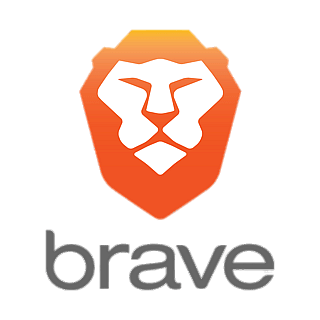A while ago, we ran an article about how Google's Chrome browser had basically "won" the internet for now. That doesn't necessarily mean it's the best though. There's many alternative browsers out there. Whilst many of them use the same "engine" as Chrome, that doesn't mean they're identical feature-wise. We've picked out five of them here for your consideration.
Mozilla Firefox
What makes Firefox different to Chrome?
Almost all browsers (including all others in this list) are now built upon the same Google-authored browsing engine that Chrome uses - Chromium. Firefox is the last major alternative standing that uses an engine of its own creation. We've seen before what happens when a single browsing engine dominates the internet with Microsoft's Internet Explorer 6, and companies are still paying the price with ancient systems that assumed it would always be that way, and are stuck now things have moved on. Just this reason alone makes Firefox's survival important.
Any other features of note?
Firefox is a bit more privacy conscious than Chrome. It has its own set of browser extensions. It also has some features that Chrome doesn't, including Autoplay blocking.
Where can I find it?
https://www.mozilla.org/firefox/download/thanks/ or search Firefox on the Google Play Store.
Microsoft Edge
What makes Edge different to Chrome?
Edge's biggest point of difference is that it has increasingly advanced integration with various other Microsoft services, including the evergreen 365 apps. To take one recent improvement, clicking on a link in an email open in Outlook will open that page in Edge with the email displayed as a sidebar on the browser so you don't have to keep switching between the two.
Any other features of note?
Edge now integrates Adobe's PDF reader, thereby rendering a separate program to do this unnecessary for those that only read PDFs. It also has increasing AI integration due to Microsoft's partnership with OpenAI - developers of ChatGPT. "Workspaces" allow a browser's state to be shared with a team, so you can all be looking at the same set of tabs, favourites and history to ease collaboration.
Where can I find it?
https://www.microsoft.com/en-us/edge/download?form=MA13FJ or search Microsoft Edge on the Google Play Store.
Opera
What makes Opera different to Chrome?
The main reason you may find having Opera in your browser "toolbelt" helpful is that it has a free integrated VPN that can be enabled. This makes it appear as though you're browsing from a different location (there's 3 broad areas to pick from - Europe, Americas and Asia).
Any other features of note?
Opera allows you to arrange your tabs in groups. It also has its own integrated AI called "Aria" that you can fire questions at. It has a sidebar containing most popular messengers (WhatsApp, Facebook Messenger etc) integrated directly into the browser.
Where can I find it?
https://www.opera.com/browsers or search Opera on the Google Play Store.
Brave
What makes Brave different to Chrome?
Brave's USP is that it is a privacy-first browser, offering better protection from ads, trackers and the like than most other browsers by default.
Any other features of note?
Brave has a "Tor" access mode - another advanced security feature that effectively allows for entreily anonymous browsing. It also has an inbuilt Crypto wallet and an optional rewards system.
Where can I find it?
https://brave.com/ or search Brave on the Google Play Store.
Arc
What makes Arc different to Chrome?
Arc is the wildcard on this list - probably the only browser that you can tell at a glance that is trying to do things differently to the others. It allows you to pull apart web pages and "remix" them to something more useful to you and essentially tries to turn the browser into an operating system of its own.
Any other features of note?
Loads, but this is one where it's probably best to try it as it's a fundamentally different experience to what you're used to. Some are suggesting this (or something like it) could be where the internet goes next.
Where can I find it?
https://arc.net/ - it's Mac only at the moment, but a Windows and mobile version is due later this year.
Haven't you forgotten about Apple Safari?
Yes, but deliberately so. We've tried to concentrate on browsers that have (or will have) cross platform support here. Apple stopped creating versions of Safari for non-Apple devices some time ago. Additionally, if you're using an iPhone or iPad, you have no choice but to use Safari. It is possible to download other browsers from the app store (including most of those above), but they are essentially just a fancy skin around Safari at the moment.





